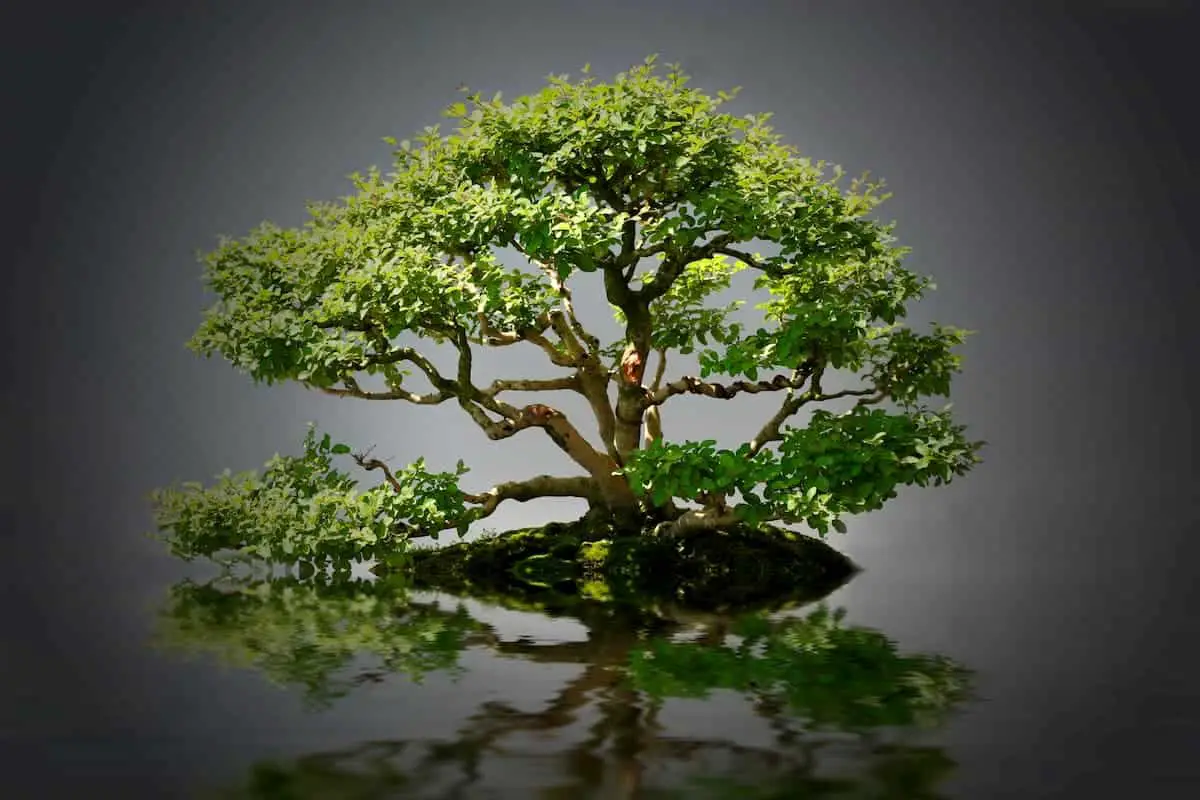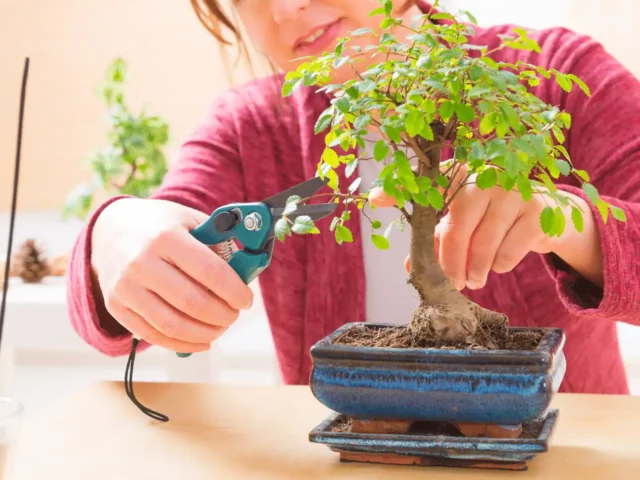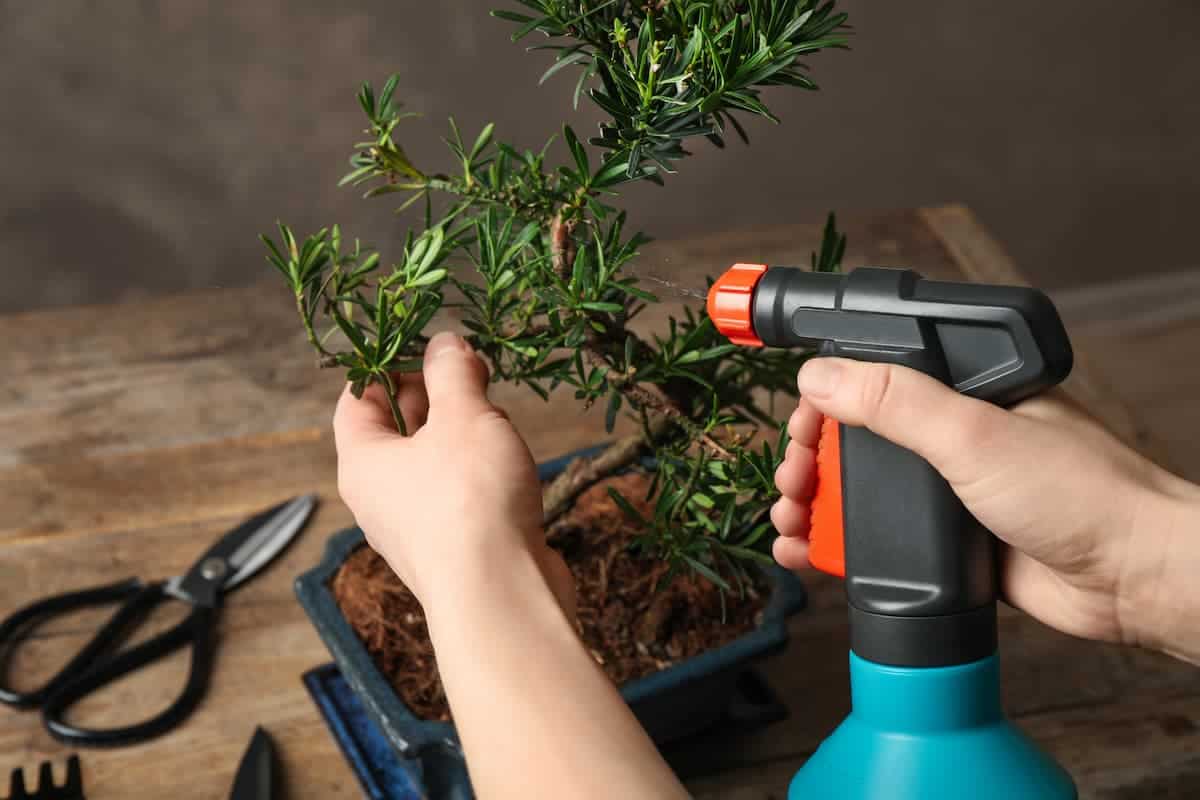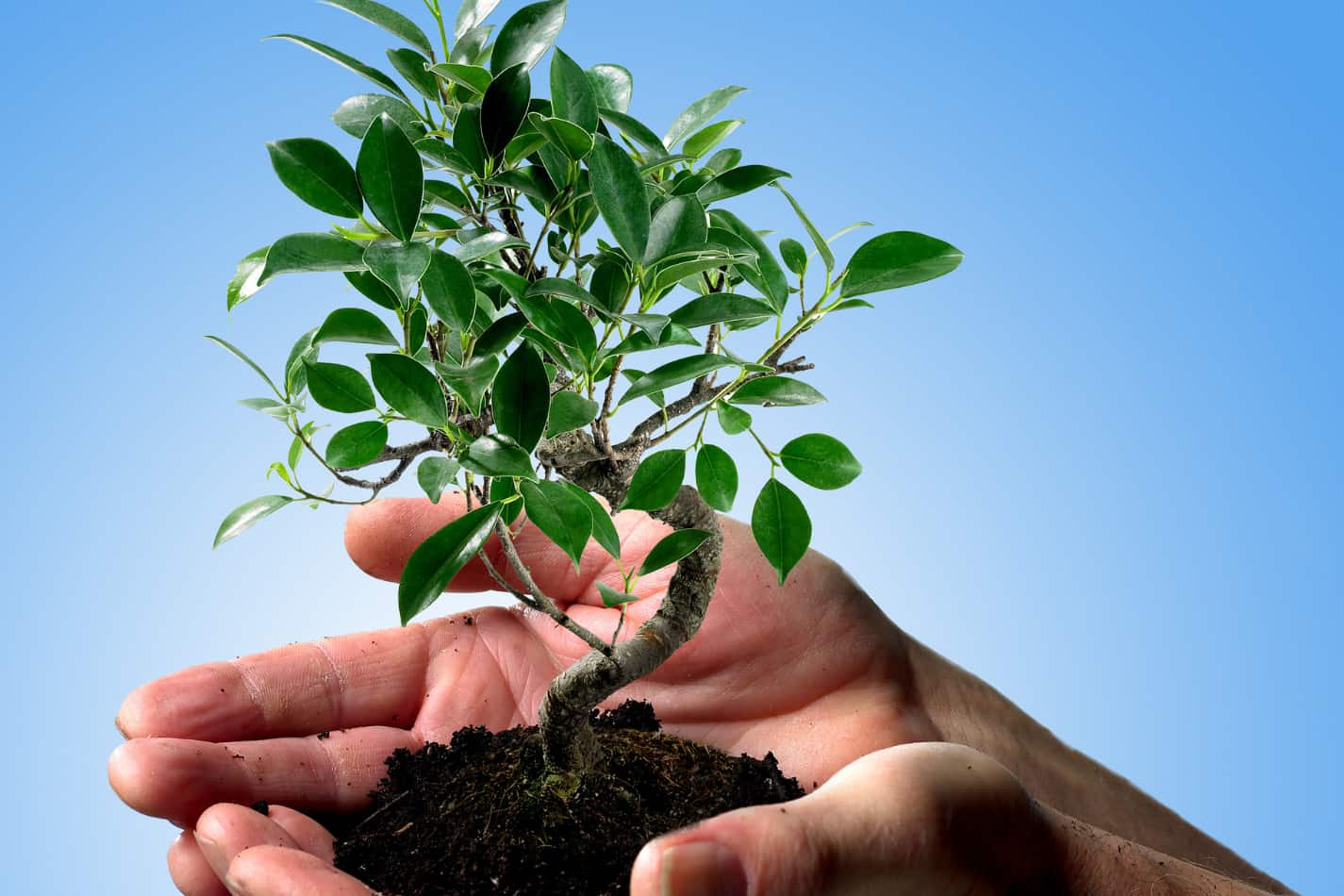Like a miniature forest breathing life into your home, bonsai trees can transform your living space with their serene beauty and timeless grace.
You might be contemplating whether they’re a good fit for your home environment. These tiny giants demand a specific care regimen but reward you with air purification, stress reduction, and a unique opportunity for mindfulness and creativity.
However, before you decide to make room for a bonsai, it’s crucial to weigh the joys against the challenges.
Let’s explore further why these living art pieces could become more than just a decorative element in your home.

Key Takeaways
- Bonsai trees enhance indoor air quality and promote tranquility, making them beneficial for home environments.
- Caring for bonsai fosters personal growth, creativity, and a deeper connection with nature.
- Indoor and outdoor bonsai varieties cater to different home settings, offering flexibility in choice.
- Meticulous care requirements underline the importance of understanding specific bonsai needs for their well-being at home.
The Charm of Bonsai
Bonsai trees, embodying nature’s serene beauty, not only enhance your home’s aesthetic but also offer a pathway to cultivating patience and mindfulness.
Delving into the art of bonsai, you engage in an ancient practice that transforms indoor trees into living sculptures, symbolizing harmony, balance, and peace.
Deeply rooted in Japanese tradition, these miniature house plants serve as a daily reminder of the world’s natural rhythms and the value of slow, intentional growth.
As you observe your bonsai through seasonal changes, you’ll find lessons in impermanence and the beauty of transformation. Embracing bonsai care, you embark on a journey of personal growth and creativity, making these exquisite trees a meaningful addition to your space, fostering an environment of tranquility and self-improvement.
Care and Maintenance
To ensure your indoor bonsai thrives, it’s crucial to monitor soil moisture levels closely, avoiding the pitfalls of overwatering or under-watering. Taking care of your bonsai involves more than just watering; it’s about understanding its unique needs.
Rotate your bonsai periodically to ensure all sides receive equal sunlight, promoting balanced growth. Fertilization should be done sparingly, tailored to your bonsai’s specific species requirements to foster robust health.
Repotting is essential for providing fresh soil and room for roots to grow, ensuring your bonsai’s longevity. Be vigilant for any signs of stress, diseases, or pests, acting swiftly to mitigate any threats.
Proper indoor care is key to your bonsai’s well-being, making the art of growing and caring for these miniature trees a truly rewarding experience.
Indoor Vs. Outdoor Varieties
Understanding the distinct needs of indoor and outdoor bonsai varieties is essential for selecting the right tree for your home environment.
Indoor bonsai trees, such as Ficus, Dwarf Jade, and Schefflera, are typically tropical or subtropical species that thrive in the stable conditions of most homes.
These types of bonsai trees adapt well to limited light and consistent temperatures indoors, making them ideal for those seeking to grow bonsai without extensive outdoor space.
Conversely, outdoor bonsai trees like Juniper and Japanese Maple require exposure to seasonal changes, demanding specific outdoor conditions that replicate their natural habitat.
These trees may not flourish indoors due to the lack of adequate light and temperature variations. Recognizing these differences is key to meeting your bonsai tree needs and ensuring a successful bonsai experience.
Health and Well-being Benefits
Keeping bonsai at home offers significant health benefits. These miniature trees enhance air quality by filtering out pollutants and boosting oxygen levels. This can lead to improved mental focus and a reduction in stress-related symptoms.
Additionally, the practice of tending to bonsai trees requires patience and attention. It serves as an effective stress reduction technique and promotes a sense of tranquility.
Air Quality Improvement
Bonsai trees are renowned for their ability to purify indoor air, significantly reducing toxins while boosting oxygen levels, thus offering substantial health and well-being benefits.
By absorbing harmful air pollutants found in the indoor environment, these trees indoors act as natural air filters. The presence of bonsai not only enhances the quality of indoor air but also helps maintain an optimal balance of humidity. This balance is crucial in mitigating common indoor air issues such as dry skin and sore throats, promoting a healthier living space.
The meticulous care and interaction required for bonsai cultivation foster a deeper connection with the natural world, enriching your indoor air and overall environment.
Embrace the practice of keeping bonsai at home to elevate your indoor air quality and embark on a journey towards enhanced well-being.
Stress Reduction Techniques
Embracing the cultivation of bonsai trees at home can significantly lower your blood pressure and alleviate stress, introducing a serene and healthful ambiance to your living space.
Various bonsai tree species contribute differently to maintaining optimal indoor humidity levels, mitigating the risk of respiratory issues and skin problems.
Implementing stress reduction techniques involving bonsai care, such as pruning and shaping, can serve as meditative practices, enhancing your relaxation and mental well-being.
Moreover, these miniature trees excel in air purification, actively producing oxygen while reducing harmful indoor air pollutants.
This dual function not only supports physical health by ensuring cleaner air but also fosters an environment where you can thrive, free from the burdens of stress and polluted surroundings.
Mental Focus Enhancement
Interacting with bonsai trees can significantly enhance your mental focus and concentration by encouraging the practice of mindfulness.
Research demonstrates that proximity to these miniature trees not only lowers stress levels but also bolsters cognitive function.
The meticulous care bonsai plants demand instills a serene composure, paving the way for heightened mental clarity and focus.
Engaging in the meditative ritual of pruning and shaping hones your attention to detail, promoting mental relaxation and sharpening cognitive abilities.
Moreover, bonsai cultivation nurtures a sense of responsibility and mindfulness, vital for sustaining improved mental focus and overall well-being.
Embracing this ancient art form can, therefore, serve as a potent tool in enhancing your mental focus through stress reduction and mindfulness practices.
Potential Challenges
While keeping bonsai trees indoors offers aesthetic and emotional benefits, it presents several challenges that require careful attention to their unique environmental needs.
Temperate bonsai, for instance, undergo a crucial winter dormancy period that’s hard to replicate in an indoor setting. This dormancy is essential for their survival and growth, yet indoor conditions may disrupt this natural cycle.
On the other hand, tropical and subtropical bonsai trees adapt more readily to indoor environments since they don’t require a dormancy period. Nonetheless, ensuring their health involves providing high light intensity and adequate humidity.
Additionally, understanding and meeting the specific watering and temperature demands of your indoor bonsai is vital. Each species has distinct needs that, if unmet, can hinder their growth and vitality.
Making the Decision
Deciding to keep a bonsai tree at home requires weighing its potential to improve air quality against the meticulous care it demands. Bonsai trees, while enhancing indoor environments by filtering pollutants, demand consistent attention.
You’ll need to invest time in understanding the specific needs of common bonsai species to ensure they thrive. The best bonsai for your home depends on your willingness to commit to their care.
A bonsai collection can significantly boost your indoor air quality, maintain humidity levels, and foster a serene atmosphere. However, it’s crucial you’re prepared to take care of these living sculptures.
Successfully nurturing bonsai involves patience, self-awareness, and creativity, leading not only to the cultivation of beautiful trees but also to personal growth and well-being.
Conclusion
In conclusion, keeping a bonsai at home offers a unique blend of aesthetic appeal and health benefits.
It’s essential, however, to understand the specific care requirements, including the distinction between indoor and outdoor varieties.
Bonsai cultivation can enhance your well-being by purifying the air and reducing stress.
Despite potential challenges, such as maintenance demands, the rewards of patience, creativity, and a deeper connection with nature make it a worthwhile endeavor.
Carefully consider these factors to make an informed decision.






